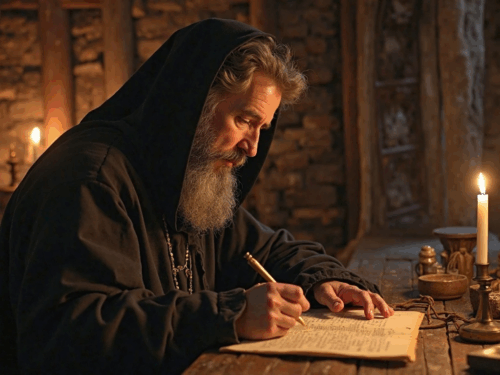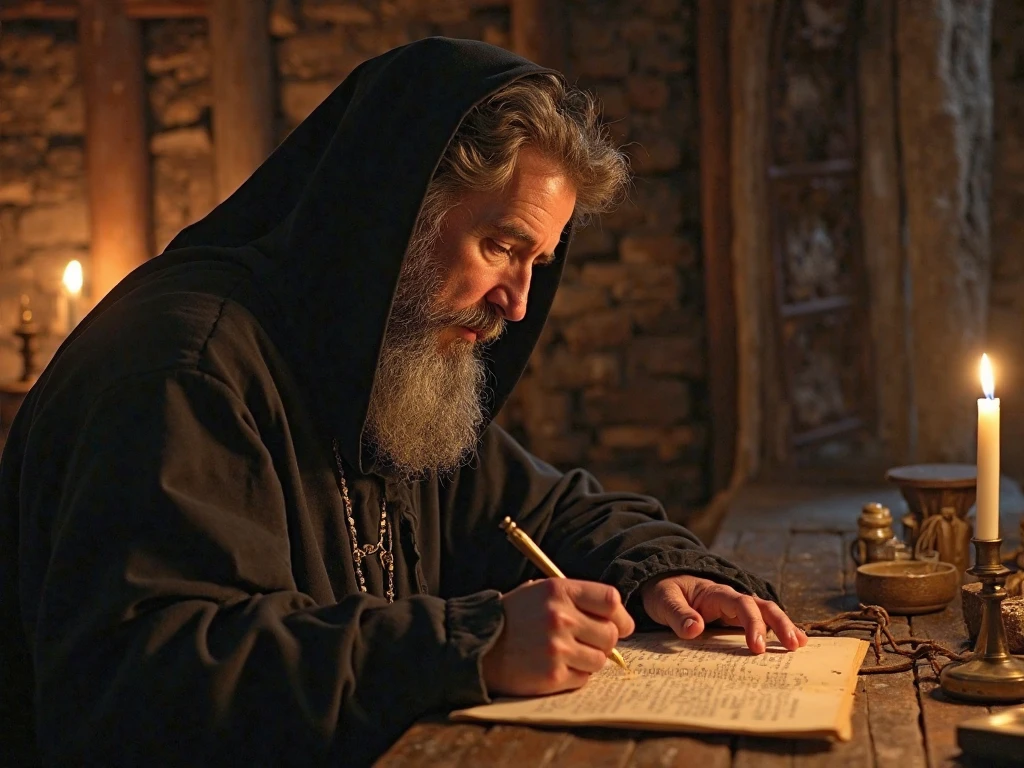On May 25, 1521, an event unfolded in the heart of Europe that would forever change the course of history. The Diet of Worms was not just a formal assembly of political and religious leaders; it was a crucible where the clash between established authority and emerging ideas ignited a transformation that continues to inspire personal empowerment in the modern era. In this story, we find not only the seeds of a religious reformation that reshaped Europe but also timeless lessons about integrity, resilience, and the courage to speak one’s truth.
## The Historical Setting: Europe on the Eve of Transformation
During the early 16th century, Europe was a continent defined by religious uniformity and the unquestioned authority of ancient institutions. The Catholic Church had long been the cornerstone of spiritual and ordinary life, and any deviation from its doctrines was harshly met with resistance. Martin Luther, a German monk and theologian, began questioning the practices and teachings of the Church, challenging the abuses of power and the selling of indulgences. His ideas, initially penned in the form of the famous 95 Theses, spread quickly, stirring unrest across the continent. The burgeoning desire for reform and self-determination in matters of faith and conscience set the stage for an unprecedented confrontation with institutional authority.
## The Diet of Worms: A Clash of Conscience and Authority
In the imperial city of Worms, under the watchful eyes of the Holy Roman Emperor and leading figures of the Church, Martin Luther was summoned to defend his ideas. The assembly, known as the Diet, represented the apex of political and religious power in the region. Here, Luther was given one clear ultimatum: renounce his writings and beliefs, or face dire consequences. What transpired in that assembly was a masterclass in moral courage. Standing before the might of empire and centuries of tradition, Luther famously refused to recant his views. His steadfast declaration, “Here I stand, I can do no other,” was not merely an act of defiance but a reverberating statement on the primacy of individual conscience over imposed dogma.
Throughout the proceedings, Luther’s demeanor was one of calm resolve. He argued that truth was not a commodity to be molded by authority, that the divine and personal interpretation of sacred texts could not be shackled by human institutions. His willingness to challenge a system that had defined the boundaries of acceptable thought for centuries marked a turning point. The Diet of Worms became symbolic not only of religious reform but of the universal struggle for intellectual and personal freedom.
## The Aftermath: Reforming Society and Redefining Authority
The immediate outcomes of the Diet of Worms were complex and far-reaching. Luther’s defiance paved the way for the Protestant Reformation—a movement that fundamentally altered the religious, political, and cultural landscape of Europe. The very fabric of society began to unravel in favor of individual expression and interpretation. As people across Europe took up the mantle of reform, the authority of longstanding institutions was increasingly questioned. The ideas of personal judgment, critical inquiry, and spiritual autonomy began to supplant the dogmas that had once dictated every aspect of life.
In many ways, the reverberations of the Diet and the subsequent movement were revolutionary. They catalyzed the translation of sacred texts into vernacular languages, democratizing knowledge and empowering individuals to engage directly with their faith, free from the gatekeeping of a centralized ecclesiastical authority. This democratization of knowledge did not stop at theology; it laid the groundwork for an era in which questioning the status quo became not only acceptable but necessary for progress. The courage to confront orthodoxy, as exemplified by Luther, became a beacon for intellectual freedom, encouraging people to look beyond tradition and embrace innovative ideas.
## Applying the Lessons to Modern Life
Fast forward to the present day, and the echoes of the Diet of Worms continue to inspire millions. In an age where information flows freely and the boundaries of traditional authority are constantly being tested by new paradigms, the determination and integrity demonstrated in 1521 offer valuable lessons for personal growth and societal progress. Here are several ways in which the spirit of that historic moment can be applied to benefit an individual in today’s world.
### Embracing the Courage to Stand Alone
One of the most striking lessons from the Diet of Worms is the importance of standing firm in one’s beliefs, even when the overwhelming weight of opposition suggests retreat. In today’s society, individuals often face pressures to conform—to follow trends, to echo popular opinions, and to suppress the dissenting voices that make us unique. Whether it is in the realm of personal relationships, a challenging work environment, or the public discourse of our civic life, there is immense value in the courage to stand alone. Just as Martin Luther’s solitary stance helped ignite a revolution, your willingness to speak your truth can empower you and inspire those around you. When you choose to honor your own convictions, you also encourage others to explore their own ideologies, leading to a culture of mutual respect and profound personal authenticity.
### The Triumph of Personal Integrity
Luther’s unwavering commitment to his ideals reminds us that personal integrity is a cornerstone of lasting success. In modern contexts—from professional decisions to moral dilemmas—upholding one’s values may sometimes seem like a risk, particularly when doing so puts you at odds with established practices. However, history shows that true progress is made when individuals refuse to compromise on their core beliefs. Whether you are in a leadership role or embarking on a personal journey, prioritizing integrity cultivates a sense of inner peace and strength. Over time, this steadfast commitment builds a reputation of trustworthiness and reliability, which in turn opens doors to opportunities that might otherwise remain closed. Embracing integrity, much like Luther did in Worms, means that you are ready to face challenges head-on, confident that your uncompromising values will guide you through the storm.
### Innovation and the Breaking of Conventions
The reforms that followed Luther’s bold stance were fueled by a spirit of innovation and the questioning of age-old conventions. Today, we live in a world that celebrates creativity and entrepreneurial energy; however, innovation still requires that same fundamental willingness to challenge established norms. Whether you are an artist, a business leader, or simply someone trying to find unique solutions to everyday problems, adopting a mindset that questions the status quo can spark transformational changes. By daring to envision new models, workflows, and creative paradigms—regardless of the noise from critics—you tap into a legacy of transformative power that has driven human progress for centuries. Consider how many technological breakthroughs and paradigm shifts in science and culture have their roots in someone’s decision to say, “Enough is enough; let’s try something different.”
### The Value of Intellectual Freedom
At its core, the Diet of Worms was a battle for intellectual freedom—a concept that remains just as relevant today as it did in 1521. In an era of rapid technological advancement and global connectivity, the ability to think independently and critically is perhaps our most valuable asset. With an abundance of information at our fingertips, it is crucial to filter out the noise and form opinions based on evidence, thoughtful consideration, and personal reflection. This process of intellectual empowerment enables you to make well-informed decisions in every aspect of life—from career moves to personal relationships. By fostering a culture of curiosity and continuous learning, you allow yourself to break free of the limitations imposed by external authorities, making room for creativity, innovation, and a more vibrant, dynamic personal narrative.
### Resilience in the Face of Adversity
The demand for Luther to recant his beliefs placed him in a position fraught with danger and uncertainty. Yet, his resilience in standing up to overwhelming authority is a reminder that perseverance is often the bridge between adversity and achievement. Life is replete with challenges that test our resolve, from personal setbacks to broader societal conflicts. Embracing a resilient mindset means acknowledging that every difficulty is an opportunity for growth. Like the reformers who followed Luther’s example, you can transform adversity into a catalyst for change. This transformation begins with an honest assessment of your strengths and weaknesses, followed by a commitment to push through the obstacles on your path. When you encounter resistance, let it be a testament to the significance of your journey rather than a sign to retreat.
### The Empowerment of Questioning the Norm
The events in Worms underscore the importance of asking difficult questions and challenging established narratives. In today’s fast-paced world, where opinions and ideas often spread as rapidly as they are formed, the willingness to question and think critically is paramount. By engaging in thoughtful inquiry, you open yourself up to new perspectives that can enrich your understanding of the world. In every conversation, project, or decision, the habit of questioning empowers you to seek out deeper truths and forge connections that are based on genuine insights rather than superficial assumptions. This practice of continuous questioning not only leads to personal enrichment but also contributes to the broader cultural shift toward a more open, curious, and intellectually vibrant society.
## A Personal Call to Action: How to Embody the Spirit of 1521
Drawing inspiration from the events of the Diet of Worms, today’s individual can take concrete steps to harness the power of conviction in everyday life. The following are practical ways to apply the enduring lessons of that historic moment to your own journey of growth and self-improvement.
### 1. Cultivate Your Inner Voice
In a world that constantly bombards you with opinions from every angle, it is vital to cultivate your inner voice. Take frequent moments to reflect on your beliefs and values. Ask yourself what principles are non-negotiable and stand ready to defend them, even if it means diverging from the crowd. This process of self-reflection creates a strong foundation upon which you can build a life of purpose and authenticity. Whether through journaling, meditation, or engaging in thoughtful discussions, nurturing your internal dialogue will empower you to navigate life’s complexities with clarity and conviction.
### 2. Embrace Constructive Disagreement
In today’s pluralistic society, differing viewpoints are not only inevitable—they are essential for progress. Just as Luther’s dissent sparked a revolution in thought, engaging in constructive disagreement can lead to personal and collective breakthroughs. Actively seek out conversations that challenge your perspective, and instead of shunning dissent, view it as an opportunity to refine your arguments and broaden your understanding. Embracing this mindset transforms conflicts into learning experiences, reinforcing the idea that growth often comes from the willingness to explore uncomfortable truths.
### 3. Foster a Community of Like-Minded Explorers
While the image of Luther standing alone is iconic, it is important to balance individual courage with community support. Surround yourself with a network of individuals who value intellectual freedom, mutual respect, and continuous learning. These communities can be found in academic circles, creative groups, or even online platforms dedicated to thoughtful discourse. By aligning yourself with people who encourage critical thinking and respectful debate, you reinforce your own commitment to living a life guided by truth and integrity. This collective energy becomes a powerful force for change, both in your personal sphere and in the wider community.
### 4. Reinvent Yourself Through Lifelong Learning
One of the most transformative outcomes of the Reformation was the democratization of knowledge. Today, the spirit of lifelong learning is more accessible than ever. Embrace every opportunity to learn something new—whether it be through formal education, self-study, or experiential growth. Set aside time regularly to delve into subjects that intrigue you or challenge established conventions. This process not only expands your knowledge base but also affords you the flexibility to adapt to an ever-changing world. Let the legacy of transformative learning remind you that no matter where you stand today, every new insight is a step toward a more empowered future.
### 5. Turn Adversity into Opportunity
Reflect on moments in your life when you faced adversity or were pressured to conform, and consider how those situations could be reinterpreted as opportunities for growth. The Diet of Worms teaches us that great change often emerges in the crucible of challenge. Embrace setbacks as the natural counterbalance to innovation. Whether it’s a failed project at work or a personal disappointment, approach each obstacle with the mindset that every experience carries the seeds of future success. Transform each moment of difficulty into a catalyst for self-improvement—a chance to learn, evolve, and forge ahead more resilient than ever before.
## The Enduring Legacy of the Diet of Worms
The story of the Diet of Worms is a testament to the power of individual conviction in the face of systemic authority. It is a reminder that even a single voice, when driven by truth and integrity, has the capacity to reshape the course of history. The events of that fateful day in 1521 did more than spark a religious reformation; they ignited a movement that challenged the very notion of unquestioned authority and championed the cause of personal liberty. In the centuries that have passed, the legacy of that moment has influenced everything from democratic governance to modern educational reforms. It continues to serve as a metaphor for the triumph of the human spirit—a call to champion our beliefs and stand firmly for what we know in our hearts to be true.
As you navigate your own path, let the lessons from the Diet of Worms guide you. Recognize that the pursuit of truth is a journey filled with trials and setbacks, yet it is precisely in these moments of conflict and challenge that the seeds of transformation are sown. Every decision to speak out, every challenge to outdated norms, and every act of personal courage is a tribute to that enduring legacy. In a world that is constantly evolving, the strength to stay true to your convictions is more than a personal virtue—it is a revolutionary act.
## Finding Your Own Revolution
Today’s world offers a myriad of platforms to voice your ideas—from social media and blogging to community organizing and entrepreneurship. The spirit of 1521 teaches you that revolution begins with a single, determined step. Whether you are advocating for social change, innovating in your field, or simply striving to live authentically, remember that your voice matters. The courage to be different and the willingness to stand alone are the very qualities that have driven humanity’s greatest achievements. Embrace your inner revolutionary and allow your unique perspective to be a beacon for others navigating similar journeys.
The transformative moment in Worms was not achieved without personal sacrifice. Many who dared to challenge the dominant narrative faced isolation, persecution, and an uncertain future. Yet, their willingness to risk it all for the sake of truth set in motion a ripple of change that continues to benefit society today. In your own life, the decision to defy convention and pursue authenticity may require sacrifices—moments when you choose integrity over immediate acceptance. However, over time these sacrifices will build the foundation of a life defined by originality, strength, and purpose.
## Conclusion: Empowerment Through Historical Insight
The Diet of Worms stands as a powerful example of what it means to dare to speak the truth, even when surrounded by overwhelming opposition. Its legacy reminds us that the battle for intellectual freedom, personal integrity, and innovation is as relevant today as it was nearly five centuries ago. By learning from this momentous event, you can harness its energy to forge a path of self-determination in every facet of your life.
Whether you choose to challenge outdated systems, pursue knowledge relentlessly, or simply live your truth without compromise, allow the timeless lessons of 1521 to inspire you. Embrace every opportunity to question, learn, and grow. Let your inner voice rise above the noise of conformity and guide you toward a future where your convictions shape not only your destiny but also contribute to the collective progress of society.
Today, as you reflect on the enduring impact of the Diet of Worms, remember that history is not just a record of the past—it is a living, breathing source of inspiration. Just as Martin Luther’s courageous stance in Worms set in motion a transformative wave that reshaped centuries, so too can the strength of your convictions create ripples that extend far beyond your immediate world. Stand tall in the knowledge that each act of defiance against injustice, each moment of truth spoken in the face of adversity, is a commitment to a future defined by freedom, creativity, and unyielding integrity.
This historic event challenges you to become your own agent of change. Reflect on your personal and professional life—are there moments when you can choose to be more authentic? Are there areas where questioning conventional wisdom might lead to breakthroughs? Harness the wisdom of the past and channel it into actionable steps that will empower you to innovate, lead, and inspire.
Let the lesson be clear: there is immense power in believing in your convictions and the courage to act upon them. In every challenge you face, recall that the transformative acts of individuals can lead to monumental shifts. Your unique journey, fueled by passion and guided by an unwavering commitment to truth, has the potential to spark a revolution in your own life—and in the lives of those around you.
As you move forward, consider how you might continue to learn from history. Seek out stories of those who dared to question the status quo, who faced persecution or hardship in pursuit of a better world. Let these narratives remind you that the spirit of inquiry and rebellion is interwoven with our collective human experience. Every setback you overcome and every time you choose to trust your inner voice is a small but significant echo of the courage demonstrated in Worms centuries ago.
Now is the time to take that bold step. Write your own chapter in the ongoing story of human progress. Whether you challenge an outdated policy at work, initiate a creative project, or engage in a heartfelt conversation with someone whose perspective differs from yours, remember that progress often begins with a single act of bravery. Embrace that truth, stand tall, and let history serve as a constant reminder that you too are a vital force in shaping a future built on freedom, integrity, and endless possibility.
May the legacy of the Diet of Worms inspire you each day to live authentically, never be afraid to question, and always, always trust the power of your own conviction. The courage to stand up for what you believe is not just a relic of distant history—it is a timeless force that continues to empower and transform lives, one bold decision at a time.
In the end, every moment of resistance against injustice, every question raised against outdated practices, and every dream pursued in the shadow of adversity is a tribute to that storied day in 1521. Let the enduring flame of conviction illuminate your path and serve as the foundation for your personal revolution. Embrace the journey, savor the challenges, and take pride in every step you take toward a future where truth, creativity, and courage reign supreme.
May this historical insight be a catalyst for your renewed determination, a constant reminder that, like Martin Luther at Worms, your unwavering commitment to your beliefs has the power to change the world. Step forward boldly into your future and let your life be defined by the fearless pursuit of truth and the relentless challenge of the status quo.

